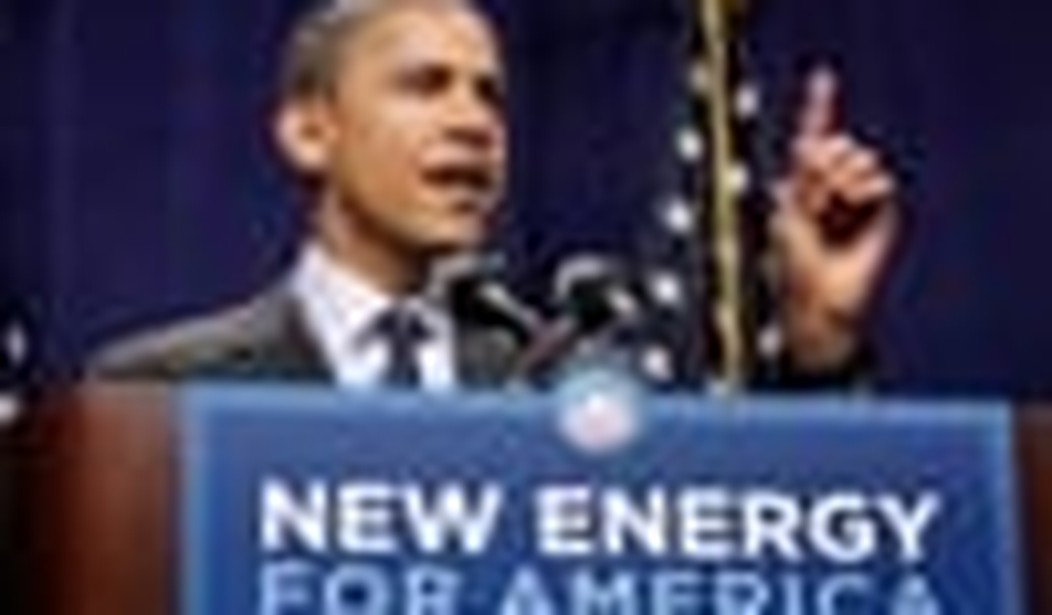Energy industry advocates were pleasantly surprised when President Obama finally bowed to the public clamor to do something — anything — about high gas prices. In an announcement last week, the president promised to speed up lease approval in Alaska and open up a number of new leasing areas in the Gulf of Mexico. Perhaps he’s seen the light?
Not so fast. Consider this breathless excerpt from an “Obama for America” e-mail sent out by campaign manager Jim Messina:
The CEOs from the five major oil companies — which together booked $36 billion in profits in the first quarter of 2011 alone — went to the Senate on Thursday to try to justify the $4 billion in tax giveaways they’re receiving this year.
It’s a head-smackingly obvious example of how broken Washington is that there’s even a question about this. These companies don’t need and don’t deserve taxpayer money — especially with a budget deficit to close and gas prices at or near record highs.
Even worse is the fact that when the Senate tries to strip these oil company giveaways, it’s likely that a minority of senators will block a vote from happening. And even if the Senate manages to pass a bill eliminating the giveaways, there’s little chance it will be brought up for a vote in the House.
Here’s why: These five companies are expert manipulators of the money-for-influence game in Washington that the President is working to change. It’s simple math — they spent more than $145 million last year on nearly 800 lobbyists whose job is to defeat bills like this one. The $4 billion they’ll likely get to keep as a result represents a 2,700% return on their investment.
Sure, $145 million is a lot of money — but other industries spend far more on lobbying and don’t create nearly as much capital investment.
Here Messina engages in a tried-and-true liberal tactic: when all else fails, bash the oil companies to convince the environmentalists and other anti-corporate types that you’re on their side. As we’ve seen with other promises from this administration, the rhetoric may not match the eventual reality. We were on the path to opening up oil exploration once before — until, a few weeks later, eleven fatalities and millions of barrels of oil spilled in the Gulf of Mexico changed their collective minds.
This schizophrenic approach also means that oil companies will find little financial incentive to drill domestically and create jobs. Remember, like all businesses, the oil and natural gas industry is striving to decrease the cost of production while maintaining a profit margin acceptable to investors. (Private investment in this field is relatively unique to the United States. Most of the world’s largest oil companies are government-owned. For example, Saudi Aramco, which belongs to the Saudi government, is the world’s largest oil company, while Houston-based Citgo’s parent company is Venezuela’s state-owned Petroleos de Venezuela, S.A.)
And Messina is maliciously understating the tax situation energy companies face. The “$4 billion in tax giveaways” he claims oil companies are getting are similar to those received by other industries where investment is required for research and infrastructure for a product which enables a return on investment. Doing the preliminary work only to drill a “dry hole” in the oil business is akin to researching and lab-testing a promising cancer drug that is found not to work. Both create costs that aren’t recoverable except in their tax treatment.
Moreover, in the United States, oil and natural gas companies pay a larger share of their net income in taxes than other industries; according to industry figures the share is 41.1 percent, compared to 26.5 percent for other S&P industrial companies. Factor in the annual cost of the leases the federal government is grudgingly making available for exploration and it becomes more obvious why energy companies may not immediately jump at the opportunity to explore and drill domestically.
They may also be gun-shy because there’s been no consistent policy in place; Republican administrations tend to make life easier for energy companies before their Democratic opponents tighten the screws once again. It’s difficult to make long-term plans when the rules continue to change and the bureaucracy tends to become more politically correct and hostile to this proven energy source.
To borrow Messina’s pet phrase, it’s “head-smackingly obvious” that the overall mood of this administration is still hostile to the energy companies which deal in the oil and natural gas industry. This hollow attempt to pacify Americans who worry about paying $50 or more just to fill up their gas tanks for a few days is belied by the overall energy policy of a regime which prefers the unproven technologies of “green” energy to something we already know works efficiently and cheaply and is readily available domestically (if we’d make the commitment to allow for its extraction). Railing on tax breaks enjoyed by a number of industries besides Big Oil isn’t going to create new jobs or make pump prices that much cheaper.
Now if only we could harness all that hot air expended bloviating against a vital American industry, maybe we really could solve the energy crisis.









Join the conversation as a VIP Member